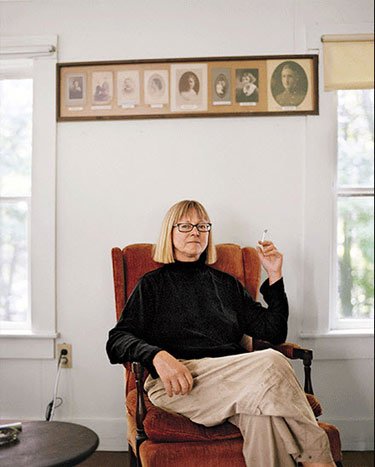At Least She Has Not Hanged Herself So Far…
"The Last Samurai", Books, Helen DeWitt, Publishing
Helem DeWitt’s first novel, The Last Samurai, made a big splash when it was published, but the author had publishing problems. Time has gone by, and she is not yet rich. In fact, she is so broke that she is struggling with a dying laptop she cannot afford to replace, and when she tried to donate a second time to Bernie Sanders recently, her credit card was declined.
Christian Lorentzen, describes the author’s hard luck story in New York Magazine, reprinted by Vulture:
The Last Samurai was a sensation even before it appeared. The toast of the Frankfurt Book Fair in 1999, with rights sold to more than a dozen countries, the novel came out in 2000 to wide acclaim, sold in excess of 100,000 copies in English, and was nominated for several prizes. But for DeWitt, this was the beginning of a long phase of turmoil that still hasn’t abated. The book’s success was marred by an epic battle with a copy editor involving large amounts of Wite-Out; typesetting nightmares having to do with the book’s use of foreign scripts; what she describes as “an accounting error†that resulted in her owing the publisher $75,000 when she thought the publisher owed her $80,000; the agonies of obtaining permissions for the many outside works quoted in the novel, including Akira Kurosawa’s The Seven Samurai — which was the title of The Last Samurai until it was deemed legally impossible. …
When DeWitt talks about her artistic breakthroughs, she has a way of quickly turning to her travails with the publishing industry. “Of course, at that point I had never talked to an agent, so I had never had the kind of conversation where you have some hotshot agent saying, ‘No publisher will allow that.’ †DeWitt had earlier compared publishing to the pharmaceutical industry: The way drug companies suppress negative trial results in her view is similar to the way agents’ and editors’ failed deals are never reported, nor the way they stifle literary talent in the cradle. “There could be all these people out there having these ideas and being told, ‘No, no, no, no.’  
DeWitt has a keen interest in David Foster Wallace. The two writers have some important things in common: a rigorous academic background, an aesthetic of fracture, suicide as subject matter. She believes that if all had gone as smoothly as it could have with the publication of The Last Samurai, it would have been in the cohort of Infinite Jest. I took this to mean that she would have been considered a rival to Wallace and Jonathan Franzen for the unofficial title of Greatest American Novelist of Her Generation. Instead she sees herself as a writer who hasn’t yet fully emerged. “Plato did not have an editor,†she said. “Plenty of writers that we admire struggled along somehow without the help of Michael Pietsch,†referring to the editor of Infinite Jest. But it seemed to me that for all she had against the publishing world, DeWitt was still looking for a savior to rescue her — not unlike Ludo looking for a father. She disagreed: All she needed was a competent partner to put her books out without screwing them up and to pay her an advance she could survive on. (She had nice things to say about New Directions, but its advances are small.)




